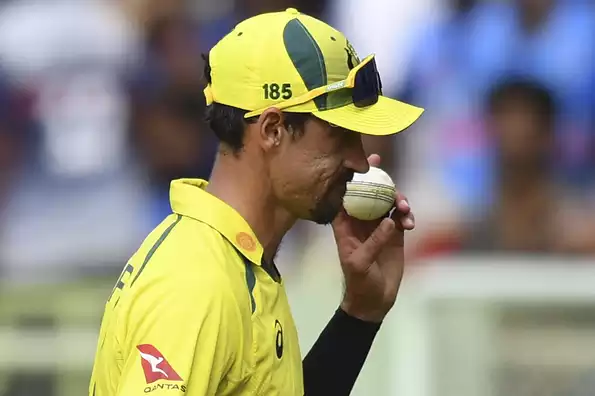Australia’s roster for the upcoming ICC Men’s Champions Trophy led by Steve Smith will be missing Mitchell Starc, Pat Cummins and Josh Hazlewood. The left-arm-seamer has opted out of the tournament for undisclosed personal reasons, which Cricket Australia has not been clear on. Following the retirement of Marcus Stoinis and injury to Mitchell Marsh, the selectors have brought in Ben Dwarshuis, Jake Fraser-McGurk, Spencer Johnson, Tanveer Sangha, and Sean Abbott into the fresh 15-man squad.
- Bumrah Resume Bowling, India consider taking him to Dubai
- After India’s victory over England in the ODI series, Ravindra Jadeja made a significant statement regarding Jasprit Bumrah’s injury, saying, “If he is fit…”
- Steve Smith Goes Past Virat Kohli in Fabulous List, Eyes Sunil Gavaskar’s Record Next
- Marcus Stoinis retires from ODI Cricket with immediate effect
- Cummins, Hazlewood in doubt for Champions Trophy
- Gill: Not Taking England ODIs as practices for Champions Trophy
- No Jasprit Bumrah in India’s ODI Team for England Series amid concerns over fitness
- Abhishek’s unsparing carnage wows beholders
- Pakistan recall Fakhar Zaman for Champion Trophy
- India and England battle of contrasts reaches Pune
Australia squad: Steve Smith, Sean Abbott, Alex Carey, Ben Dwarshuis, Nathan Ellis, Jake Fraser-McGurk, Aaron Hardie, Travis Head, Josh Inglis, Spencer Johnson, Marnus Labuschagne, Glenn Maxwell, Tanveer Sangha, Matthew Short, Adam Zampa. [Travelling reserve: Cooper Connolly]
“We acknowledge and support Mitch’s decision,” George Bailey, Chair of Men’s Selectors, remarked concerning Starc’s absence from the two upcoming ODIs in Sri Lanka. “Mitch is one of the most dependable players in Australian cricket, and the dedication he has shows through me.”
“His willingness to endure pain and adversity and sacrifice opportunities in other parts of his life to serve his nation is commendable.”
“Although hurting, his absence means the Champions Trophy campaign will not be fully affected and it allows someone else the chance to leave their stamp on the tournament.”
“If one may put it nicely, it means that we have been able to use some of the players that we have had over the last year who have played for the national team and achieved success,” Bailey said. “A potent base of some of our most seasoned performers will greatly support our endeavor to win this edition of the Champions Trophy. We have various options to customize the playing XI during the tournament based on the opposition and the conditions.” For more sports news update you can visit here


